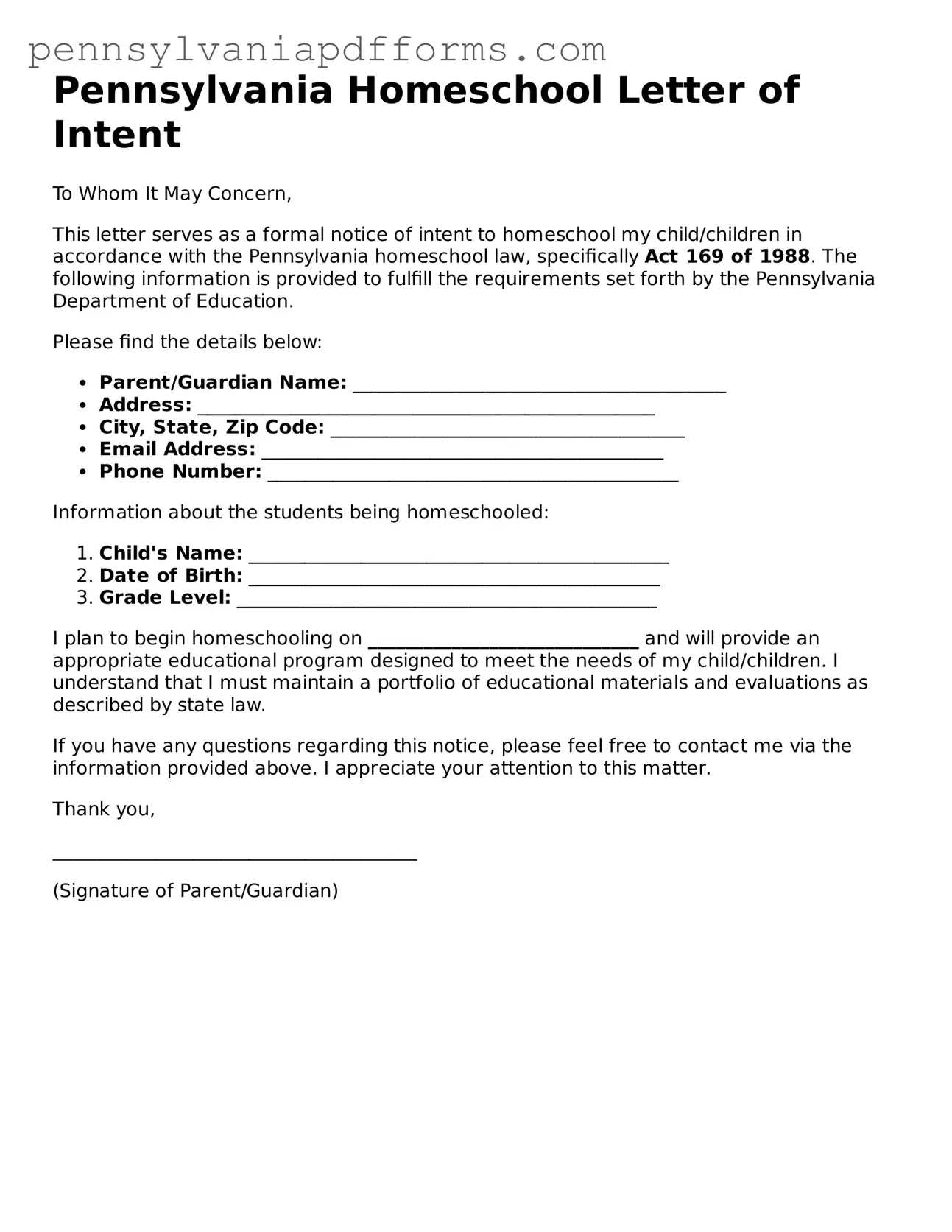The Pennsylvania Homeschool Letter of Intent form bears similarities to the Notice of Intent to Homeschool form utilized in several other states. This document serves as a formal declaration to local education authorities that a parent or guardian intends to educate their child at home. Just like Pennsylvania’s form, it typically requires basic information about the student and the educational plan, ensuring compliance with state laws regarding homeschooling.
Another comparable document is the Homeschool Registration Form found in states like Florida. This form, like Pennsylvania’s, is designed to notify the school district of a family's decision to homeschool. It often includes details such as the child's name, age, and the educational curriculum to be followed, establishing a framework for accountability and oversight by local education officials.
If you are seeking to transfer property ownership in California, it is important to familiarize yourself with the necessary documentation. The process often begins with filling out the required paperwork, and you can find the relevant Deed form for property transfer to ensure everything is completed accurately and legally.
The Intent to Homeschool form in Texas is yet another document that shares similarities with Pennsylvania's Letter of Intent. This form is less formal and does not require submission to the school district; however, it serves a similar purpose by allowing parents to declare their intent to provide home education. It emphasizes the parents' right to educate their children without needing to adhere to the same regulations as traditional schools.
In California, the Private School Affidavit functions similarly to the Pennsylvania form in that it allows parents to establish their home as a private school. By submitting this affidavit, parents declare their intent to educate their children at home, fulfilling state requirements for private education. This document requires information about the school’s name and address, paralleling the need for transparency found in the Pennsylvania Homeschool Letter of Intent.
The Educational Plan form used in New York also resembles the Pennsylvania Homeschool Letter of Intent. In New York, parents must submit an educational plan that outlines the curriculum and learning objectives for their homeschooled children. Both documents require a clear outline of the educational approach, ensuring that families meet the educational standards set by their respective states.
In North Carolina, the Notice of Intent to Operate a Home School is another document that aligns closely with Pennsylvania’s form. This notice must be filed with the local school board to officially register a home school. Similar to the Pennsylvania form, it requires basic information about the student and the educational program, thereby establishing a legal framework for homeschooling in the state.
The Home School Declaration in Ohio serves a similar function as the Pennsylvania Homeschool Letter of Intent. Parents must submit this declaration to the local school district, providing information about the educational plan and the students involved. This ensures that families adhere to state laws while also giving local authorities a way to monitor compliance with educational standards.
In Virginia, the Notice of Intent to Provide Home Instruction is yet another document that parallels the Pennsylvania form. This notice must be submitted to the local school district and includes essential details about the student and the instructional plan. Both documents emphasize the importance of notifying educational authorities about a family's decision to homeschool, fostering a sense of accountability.
Lastly, the Home School Notification Form in Illinois is similar to the Pennsylvania Homeschool Letter of Intent. This form requires parents to notify the local school district of their intent to homeschool, detailing the educational approach and curriculum. Both documents serve to inform local education authorities while ensuring compliance with state homeschooling regulations.

